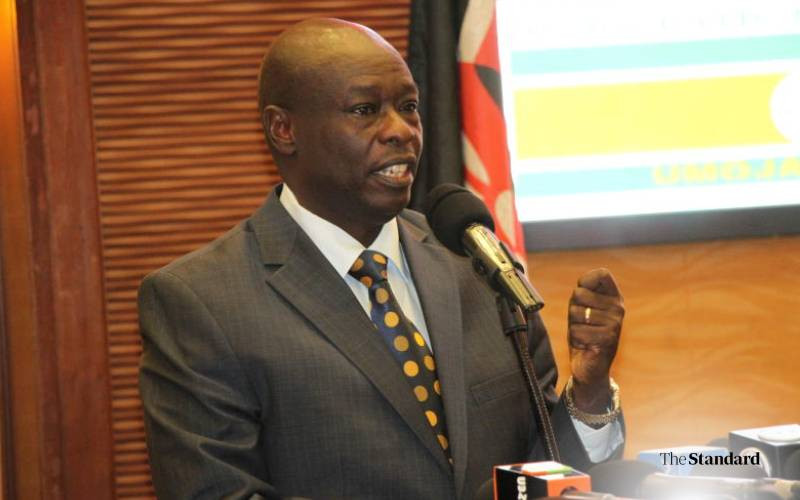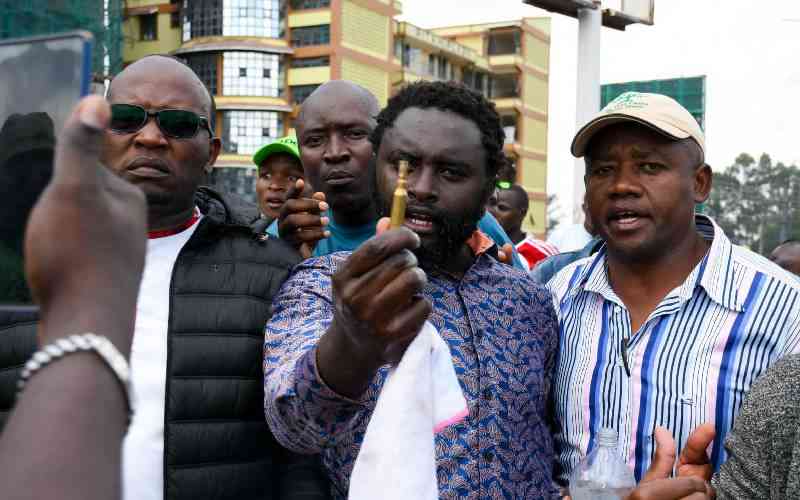Riggy G momentum is here

[David Gichuru, Standard]
The last few days have been quite momentous for former Deputy President Rigathi Gachagua. This was the week he launched his DCP party, a fairly routine affair. The previous Thursday, the Court of Appeal had thrown him a bone in his impeachment case.
The court found that the empanelment of the bench that allowed the nomination, appointment and swearing in of Professor Kithure Kindiki had been unlawful and unprocedural. That set a flurry of activities with pundits, in the usual Kenyan style, pontificating on the matter, with their views largely aligned their politics.
To those who supported the former DP, the court had conclusively determined that the appointment of Prof Kindiki was unlawful meaning that Riggy G was still the lawful occupant of the Karen residence. Former UDA Secretary General Cleophas Malala was ebullient. According to the former Senator, it was time for Kindiki to vacate the seat and leave it for the lawful occupier.
Opponents of Riggy G and the more objective analysts called for caution; while the decision of the court was a good development for the former DP, it had not gone as far as his allies were proclaiming. Truth be told, the court appeared ready to rain on Prof Kindiki’s parade, indicating at some point in the judgment that an unlawful empanelment would cast doubt on the legality of a decision. But fortunately for the good Professor, in Riggy G’s application before the Court of Appeal, the former DP had asked for several orders, but all relating to the empanelment of the court by the DCJ. For some strange reason, the lawyers did not seek consequential orders; the quashing of the High Court’s decision if the Court of Appeal found that the High Court bench was wrongly empanelled.
The nature of court proceedings is such that courts can only grant one of the prayers they seek. Secondly, the nature of court orders, especially those that have implications on people’s rights, is never a matter of conjecture and interpretation; they have to be clear, emphatic, and unambiguous.
It is therefore clear that without a specific order to quash the decision of the bench, despite the finding of irregularity, the decision of the High Court judges remains, and my good teacher remains legitimately in office. Naturally, nothing stops the former DP from applying specifically for the quashing of the decision of the court before the new panel that the Chief Justice is required to empanel. That would, however, encounter some legal headwinds.
First, the matter will most probably head to the Supreme Court, in which two of the protagonists, The Chief Justice and her Deputy sit. While they would most probably recuse themselves, I would be surprised if the Supreme Court agreed with the lower court. But anything is possible. But even if the matter just goes to the High Court, there are still challenges.
The petition that was heard by the High Court’s “irregular bench” was consolidated. The wrongful empanelment only related to one of the consolidated cases. In some other consolidated cases, the CJ herself had empanelled the bench.
Legal quagmire. Finally. The court has already heard and determined the applications for injunction on their merits and found them unsustainable. Can the same High Court grant different orders without bringing disrepute to the Court, especially after the Court of Appeal found that the bench that determined the cases was not biased? Anyway, what one wishes for is the expedited determination of the substantive case; did Riggy G’s impeachment meet procedural and substantive thresholds? The hearing of the substantive case is yet to start at the High Court. It will end up at the Court of Appeal and ultimately in the Supreme Court.
In the meantime, we are hurtling towards the 2027 election in which Riggy G’s eligibility or lack thereof will have implications. But you have to love Kenya, while we generally have little faith in institutions, we still believe in the courts’ ability to resolve all our problems, even political ones.
Of course, we question the courts’ legitimacy when it goes against us, but not for long. We need to continually celebrate our judges; they keep the country moving, even as we burden them with issues that should be sorted politically.








